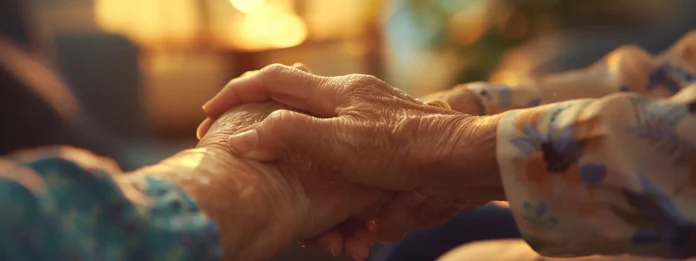Confronting the reality that a loved one needs hospice care is a profound moment filled with complex emotions and decisions. It requires understanding what hospice care entails, evaluating the available options, and discussing the preferences and needs of your loved one. Planning also involves considering practical aspects like legal, financial issues, and emotional support for both the patient and the family. In this article, we will guide you through each step of the decision-making process to ensure you are informed and prepared. Keep reading to gain insights and strategies that will help during this challenging time.
Understanding Hospice Care and When It’s Right for Your Loved One
Understanding hospice care involves recognizing its focus on comfort and quality of life for those with life-limiting illnesses. It shifts from aggressive treatments to palliative care, emphasizing symptom management and dignity rather than curing the illness. This care is typically considered when a patient has six months or less to live, and early referral ensures full access to its benefits.
Deciding on hospice care is a personal choice that should involve discussions with healthcare professionals about the prognosis. It’s also crucial to consider your loved one’s preferences and values. Complementing hospice care with comprehensive at-home care services can provide personalized support in a familiar, loving environment, enhancing the overall experience.
Legal and Financial Planning for End-of-Life Care
Legal and financial planning for end-of-life care is crucial. Preparing advance directives, durable power of attorney for health care, and living wills ensures your loved one’s wishes are respected and provides peace of mind. Understanding hospice care costs is also important; Medicare, Medicaid, and most private insurances offer varying coverage levels, so it’s wise to check what services are included and potential out-of-pocket expenses.
Consulting with financial advisors and elder law attorneys can help manage estate planning and protect family assets. For after-death arrangements, pre-planning with a Cemetery and Mausoleum can reduce future stress, allowing families to focus on their loved ones rather than making urgent decisions later.
Evaluating Your Options for Hospice Care Providers
To find the right hospice care provider, seek recommendations from healthcare professionals, friends, or family members who have experienced similar situations. Research local providers and read reviews to understand the quality of care. Schedule meetings with potential providers to discuss their services, team roles, and emergency response. Understand their approach to pain management, spiritual counseling, and family support services.
Assess the compatibility between the hospice team and your loved one, as trusting their expertise can alleviate stress during the transition. Many hospice programs also offer grief and bereavement support. Verify the accreditations and certifications of the hospice agencies, as they must be licensed, certified, and compliant with state and federal regulations to ensure professionalism and standard of care.
Important Considerations for Creating a Hospice Care Plan

A hospice care plan should be a collaborative effort that considers the loved one’s needs and preferences. It should include discussions about their wishes, such as resuscitation, artificial nutrition, and hydration, as well as their atmosphere and daily routines. The hospice care team should be involved in the planning process to explore all medical options and provide expertise in symptom management and therapy.
The care plan should be flexible and adaptable to changes in the patient’s condition or preferences. Effective communication is crucial between the family, patient, and hospice care team to prevent misunderstandings and align expectations. It is essential to consider the emotional and spiritual needs of both the patient and family.
Coping with Emotional Challenges and Family Dynamics During Transition
Transitioning to hospice care can be challenging for families, involving grief, anger, and denial. Open dialogue and acknowledging these emotions can create a supportive environment. Mediators or counselors can help navigate complex family dynamics and focus on the loved one’s well-being.
Sharing responsibilities and distributing tasks can help mitigate burnout. Respite services offered by hospice programs provide caregivers with breaks. Allowing personal grief and celebrating the life of the loved one can bring solace. Creating meaningful moments and capturing memories can enhance the quality of time remaining with the loved one and bring solace to the entire family.
Altogether, preparing for a loved one’s transition into hospice care requires a multidisciplinary approach that addresses medical, emotional, and pragmatic considerations. It’s the love, respect, and honor for the person’s life and wishes that shape this challenging journey, ensuring their comfort and dignity remain at the forefront of care.
Did you find this helpful? Check out our other helpful articles on our website.
Read Also
- The Role of Ingredients in Your Skincare: What to Look ForSkincare works best when you understand what goes into the products you use daily. Ingredients form the foundation of every formula and determine how the skin reacts over time. Each cream, cleanser, or serum has its own role, determined by its ingredients. Learning what to look for helps you pick products that help skin and… Read more: The Role of Ingredients in Your Skincare: What to Look For
- Your Guide to Finding a Trusted DentistChoosing the right dentist in Sandgate or your area is crucial for maintaining good oral health and achieving a confident smile. With countless dental practices to choose from, patients may find the task daunting. Data from the American Dental Association indicates that there are over 200,000 practicing dentists in the United States, highlighting the importance… Read more: Your Guide to Finding a Trusted Dentist
- Achieving a Defined, Balanced Facial Contour in SingaporeA well-defined jawline and a gently tapered lower face — commonly referred to as a V-shaped face — is a look many people aspire to. In Singapore’s beauty and aesthetic scene, treatments that help refine facial contours have grown in popularity as more individuals seek subtle, natural enhancements that boost confidence and balance facial features.… Read more: Achieving a Defined, Balanced Facial Contour in Singapore
- The Wellness Blueprint: How Your DNA Holds the AnswerGenetic testing is revolutionizing preventive healthcare by offering insights into individual health risks. By analyzing DNA, these tests provide a personalized health blueprint that can guide lifestyle and medical decisions. This approach, often referred to as DNA wellness testing, helps to optimize health naturally and prevent potential diseases. In recent years, genetic testing has become… Read more: The Wellness Blueprint: How Your DNA Holds the Answer
- Exploring the Benefits of Infusion Therapy in OKC: The Ultimate GuideUnderstanding Infusion Therapy: A Deep Dive into Its Purpose and Process What exactly is Infusion Therapy? Infusion therapy is an advanced medical treatment that delivers medication and nutrients directly into the bloodstream through a vein, typically via an IV (intravenous) line. This method is particularly beneficial for patients who require a concentrated dose of medication,… Read more: Exploring the Benefits of Infusion Therapy in OKC: The Ultimate Guide
- Ketamine-Assisted Therapies: Impacts on Employee WellbeingWorkplace stress is common today. Many employees feel tired, anxious, or burned out. Regular therapy can help, but some people need more support. Ketamine-assisted therapy is showing good results for mental health. A ketamine-assisted therapist guides each session safely. This therapy can improve mood, focus, and energy. Learning more about it can help teams stay… Read more: Ketamine-Assisted Therapies: Impacts on Employee Wellbeing
- The Future of Men’s Health: Why Telehealth Is Here to StayTelehealth isn’t just a pandemic trend that faded into the background. For Australian men, it has become one of the most practical, time-saving, and stress-free ways to manage everyday health — and it’s shaping the future of how we access care. Platforms like DOCTO, an Australian online doctor and specialist telehealth service, are leading the… Read more: The Future of Men’s Health: Why Telehealth Is Here to Stay
- How to Build a Simple, Clean Skincare Routine ?You don’t need a complicated skincare routine. It doesn’t have to be something that requires twenty different products and confusing steps. Your routine works well with just a few high-quality clean ingredients. The beauty industry keeps pushing more products, but your skin actually needs less. You only need a simple approach to get better results… Read more: How to Build a Simple, Clean Skincare Routine ?









